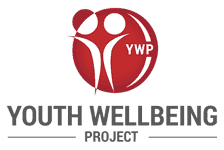A new conversation is happening in educational circles, with many speaking up about the need for kids and teens to become ‘porn literate’. It is increasingly evident that kids cannot cope with the onslaught of pornographic images they can openly access at the click of a button. Some kids mimic what they see in their behaviours towards others; some are traumatised when attempting to understand images their immature brains can’t process. Kids need to have protection and resources made available to them.
However, ‘Porn Literacy’ may fail to effectively address porn culture, particularly if it’s the version advocated for by UK voice Jenni Murray, who recently suggested carefully chosen examples of pornography could be shown in classrooms to teenagers from the age of 15.
Neuroscience: an essential componant
Proponents of this approach may need to better understand neuroscience. The brain, particularly throughout adolescence, is still under construction and at higher risk of developing unhealthy patterns of behaviours. The ‘brakes’ of the developing prefrontal cortex need strengthening through continual ‘smart choices’ as young people mature. Given the existing evidence of risks associated with internet porn use, showing porn in classrooms could cause more harm to young minds at risk.
Other versions of ‘Porn Literacy’ would increase access to sexual information, encourage young people to study media literacy, and engage them in conversation about gender, race, consent, and power. These versions promote sexual pleasure and productive solutions to sexual harm. Students would ponder questions such as ‘What role does porn play in your life and relationships?’; ‘What messages about yourself or about a potential (or current) sexual partners do you receive from porn?’; ‘How do these messages align with your values and real-life actions?’; and ‘What feelings come up for you before, during, and after you watch porn? Is it a positive, entertaining experience, or does it cause you some level of distress?’
Porn Literacy is an approach that only tells part of the story
These approaches seem rational and reasonable; however, they only tell part of the story related to sexual health education of young people and the broader community.
To raise kids to make autonomous choices, we need something much stronger than ‘porn literacy’. We need ‘Critical Porn Analysis’, which is a much tougher conversation. This approach asks how porn is impacting the health of individuals, relationships, families, communities and nations. And it asks kids and teens to play a conscientious role in healing any harms done thus far.
Critical Porn Analysis
Critical Porn Analysis teaches young people online protective behaviours including the impact of pornography on the brain and arousal physiology of the body when viewing ‘scenes’ that are not part of most sexual relationships; the addictive potential of internet pornography; the potential for erectile dysfunction and arousal disorders; body image issues and performance anxieties; the possible correlation between pornography use and relationship dissatisfaction and divorce; discussion about violence within mainstream hardcore pornography; and consideration of the cultural impacts of sexual exploitation.
Educating our kids and teens about the impact of porn on sexual health is important and advocating for ‘porn literacy’, requires a few more questions be answered.
This article was published by the Society for the Advancement of Sexual Health (SASH), and a portion was originally published by Generation Next. Learn more about Critical Porn Analysis.
